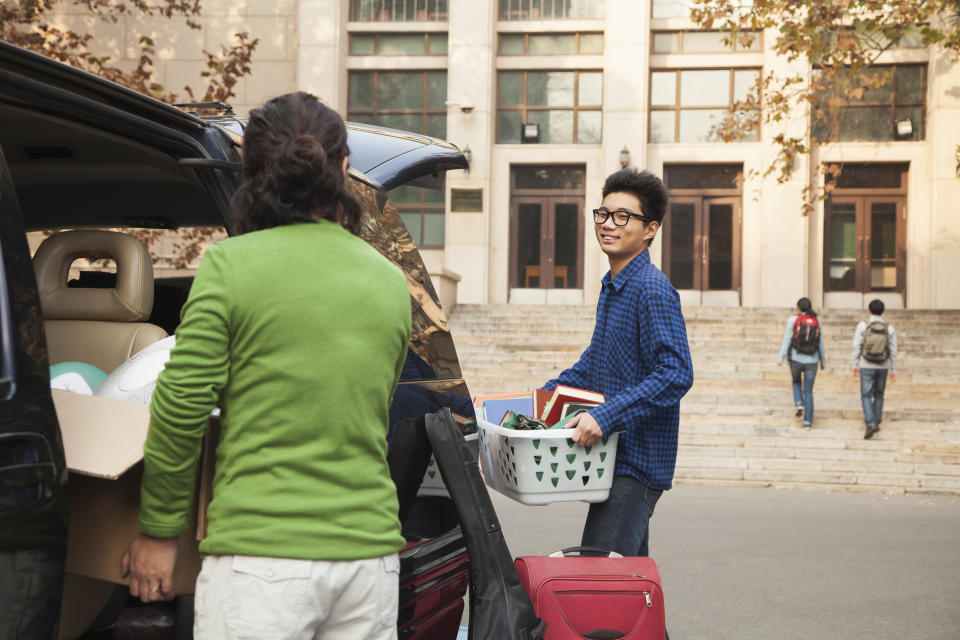Having children will make you happier – but only once they've moved out

Having children will make you happier - but there’s a catch. Your offspring will only improve your life once they fly the nest.
That’s according to a new study from Heidelberg University in Germany, which compared parents and non-parents based on the factors of life satisfaction and depression symptoms.
Their findings were based on data from a European survey of 55,000 people aged 50 and older, which asked about their emotional wellbeing.
Non-residential children
According to the results, parents with “non-residential children” (ie, those who don’t live with them) were happier.
In contrast, having “resident children” – those living at home – had a negative effect of wellbeing and mental health.
READ MORE: At what age is it OK to leave your child home alone?
“Children are indeed positively correlated with well-being and lack of depressive symptoms, when controlling for residential status,” it said – with “older people whose children have left home already” most likely to benefit.
Considering there are more young adults (aged 20 to 34) living at home now compared to any time since 1996, that means there could be a long road ahead of you.
Caregiving and social support
So why is it those with children who have left home ultimately happier than childless people, according to this research?
It’s all thanks to the role they play as “caregivers” and offering a “social support network”.
“As stress associated with balancing the competing demands of childcare, work and personal life decreases, once people get older and their children leave (home), the importance of children as caregivers and social contacts might prevail,” it said.
READ MORE: Mum calls for 'childless couples' to be banned from Disney World
The researchers referred to a study which highlighted the increasingly “crucial” role of family such as children and spouses in later life, when compared to voluntary social support networks (friends).
It also linked to an earlier study on the impact of intergenerational help and care, which highlighted children’s central role in helping parents with household tasks, paperwork and medical care in later life.
Research into happiness
All sorts of factors have been linked to happiness – not just whether you have children or not.
Research has found there are two ages when our happiness peaks: one in 16, while the other is 70.
Another study found married men are happiness and healthier – but the opposite is true of women, who are better off being single in this respect.

 Yahoo Finance
Yahoo Finance 